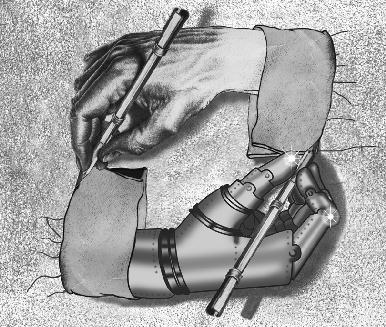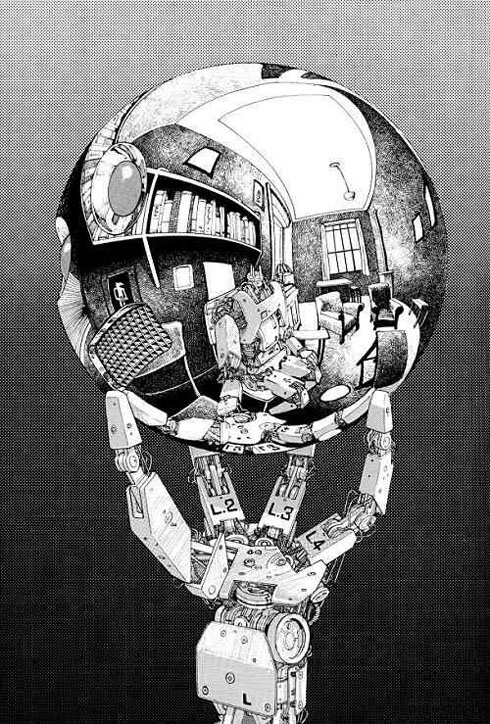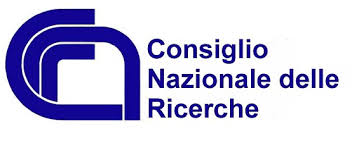 |
AIDE 20151st Workshop on Artificial Intelligence & DesignSeptember
22nd, 2015
|
 |
>>NEW<< October 13th, 2015: The proceedings of AIDE 2015 are published as a volume of the AI*IA series of the CEUR Workshop Proceedings (CEUR-WS.org)!
Workshop
description
Design is a fundamental activity in disciplines like engineering and architecture as well as in emerging areas of the social and life sciences.
The need for design rests on an assumption: We can improve (positively or negatively) our products, environment, personal or social life by consciously modifying different things like objects, processes, relationships. Modern design approaches, i.e., the methodological planning of what to change and how in order to obtain a certain result turned out to be successful and, as a consequence, the world that we inhabit is increasingly a designed rather than a natural one. In this sense, we could even say that we live an "artificial" world. Design is a fundamental step preceding most of our manipulation activities like manufacturing, production, construction and implementation. Design research aims to develop an understanding of designing both as a theory and as an activity, and to produce models that can be used to aid design and to improve its efficacy.
Design research can be carried out in a variety of ways. For instance, it can be viewed largely as an empirical endeavor in which experiments are designed and performed in order to test some hypothesis about some phenomenon or behavior. This is the approach adopted in cognitive science. The results of such research can form the basis of a computational model. In a second view, design research is carried out by positing principles (perhaps in terms of formal axioms) and then deriving consequences from them. If the axioms can be mapped onto design situations then the consequences will also characterize those situations. This is the approach adopted in mathematics and logic. A third view, and the most common one in the computational domain, is that design research can be carried out by conjecturing design processes, constructing computational models of those processes and then examining the behaviors of the resulting computational systems. These are just three important approaches for design research and, it is well known, Artificial Intelligence (AI) extensively exploits all three of them. We believe it is time to understand better the links between design and AI, what are today's successful stories of their integration, and what one research area can further offer to the other.
Topics of Interest
Contributions of interest to the workshop are those describing AI approaches that are needed, under development or being explored for design activities in a variety of domains such as
-
architecture design
-
engineering design
-
geodesign
-
environmental design
-
product design
-
software design
-
urban and regional planning
-
design for visual and auditory digital media (e.g., music, film, animation, entertainment)
The organizers encourage also the submission of interdisciplinary research across these and related domains where design plays a central role.
Submission Instructions
We solicit three kinds of contributions:
-
full papers (max 12 pages) - short papers (max 6 pages)
- demo papers (max 3 pages)
Full papers are intended to describe original research. Short papers are suitable for presenting work in progress, even if not yet mature for publication, summaries of PhD Theses, overviews of research projects, positions on some topic, and already published work. Demo papers are intended to describe software systems and prototypes developed as part of academic or industrial projects, using AI tools and/or techniques, which will be presented at the workshop.
Papers of the three kinds will be peer-reviewed by at least 3 members of the program committee. Selection will be based on relevance, clarity, and technical quality.
Papers
should be formatted according to the LNCS format (please
refer to Springer
for instructions) and submitted as PDF files via
EasyChair at the following page
https://easychair.org/conferences/?conf=aide2015
Accepted
papers will be published online as a volume of the
CEUR-WS workshop proceeding series. We also intend to
organize a journal special issue with a selection of
the best papers presented at the workshop.
Important dates
Submission deadline: June
12th, 2015 extended to June 19th, 2015
Notification of acceptance: July 19th, 2015
NEW Early registration: July
26th, 2015 (for authors of accepted papers only),
August 7th, 2015 (for everybody else)
Camera ready:
August 23rd, 2015
Workshop day: September
22nd, 2015
Programme
schedule
| 08:30 - 14:30 |
Registration |
| 08:50 -
09:00 |
Opening |
| 09:00 -
10:30 |
Session 1: Ontological foundations of Design (Chair: Francesca A. Lisi) |
| Stefano Borgo, Massimiliano Carrara, Pawel Garbacz and Pieter Vermaas: A formalization of Ashok Goel’s SBF concept of function | |
| Emilio Sanfilippo, Claudio Masolo and Daniele Porello: Design Knowledge Representation: An Ontological Perspective | |
| Nicola Guarino and Maria Rosaria Stufano Melone: On the ontological status of design objects | |
| 10:30 -
11:00 |
Coffee break |
| 11:00 -
12:30 |
Session 2: Design in Architecture and Engineering (Chair: Maria Rosaria Stufano Melone) |
| Daniele Baratta: Industrial Collaborative Robot Design: a guideline for future design activity | |
| Nikolaos Vlavianos, Stavros Vassos and Takehiko Nagakura: Towards a novel method for Architectural Design through mu-Concepts and Computational Intelligence | |
| Marco Gavanelli, Maddalena Nonato and Andrea Peano: The Isolation System Design in Hydraulic Networks | |
| 12:30 - 14:30 |
Lunch |
| 14:30 - 15:30 |
Invited talk |
| Carlo Poloni: AI tools in the design process of industrial products | |
| 15:30 -
16:00 |
Session 3: Design Thinking (Chair: Stefano Borgo) |
| Francesca Alessandra Lisi: Will AI ever support Design Thinking? | |
| 16:00 -
16:30 |
Coffee break |
| 16:30 -
18:00 |
Panel: Spatial
Planning and Spatial Organizations: The
challenges to AI (Chair: Dino Borri) |
| Panelists: - Amedeo Cesta (CNR-ISTC Roma) - Grazia Concilio (Politecnico di Milano) - Raffaele Giordano (CNR-IRSA Bari) - Nicola Guarino (CNR-ISTC Trento) - Giovanni Rabino (Politecnico di Milano) |
|
| 18:00 - 18:10 | Closing |
Logistics
The workshop will take place in Room 1 at the ground floor of
Palazzo Trotti Mosti (Trotti Mosti Palace): Corso Ercole I d'Este, 37 - Ferrara
Building Plan
The registration desk is located in the Main Room Entrance at the first floor of Palazzo Trotti Mosti.
Coffee breaks and the lunch will take place in Acquario Room at the ground floor of
Palazzo Giordani (Giordani Palace): Corso Ercole I d'Este, 44 - Ferrara
Building Plan
Programme Committee
Tarek R.
Besold (University of Osnabrück, Germany)
Mehul Bhatt (University of Bremen, Germany)
Stefano Borgo (CNR-ISTC,
Italy) CHAIR
Domenico Camarda (Politecnico of Bari,
Italy)
Enrica Colabella (Politecnico of Milano, Italy)
Anna De Liddo (The Open University, United Kingdom
of Great Britain and Northern Ireland)
Argyris Dentsoras (University of Patras, Greece)
Floriana Esposito (University of Bari “Aldo
Moro”, Italy)
Nicola Guarino (CNR-ISTC,
Italy)
Oliver Kutz (Free University of Bolzano/Bozen,
Italy)
Francesca A. Lisi (University of Bari “Aldo
Moro”, Italy) CHAIR
Riichiro Mizoguchi (Japan Advanced Institute of
Science and Technology, Japan)
Pieter Pauwels (University of Ghent, Belgium)
Giovanni Rabino (Politecnico of Milano, Italy)
Chiara Renso (CNR-ISTI, Italy)
Carl Schultz (University of Muenster, Germany)
Rossella Stufano Melone (Politecnico of Bari,
Italy)
Walter
Terkaj (CNR-ITIA, Italy)
Registration
The registration procedure is managed by AI*IA. To register follow the instructions at: http://aixia2015.unife.it/registration/.
Organising Committee
Stefano
Borgo
Laboratory for Applied Ontology, CNR-ISTC, Trento
Domenico
Camarda
Department of Civil
Engineering, Politecnico of Bari
Francesca
A. Lisi (contact person)
Department of Computer Science, University of
Bari “Aldo Moro”
Historical curiosity
The workshop will be held in Ferrara (Italy) which provides the first example in the history of urbanistics of a city designed using modern methods (15th century).
https://en.wikipedia.org/wiki/Biagio_Rossetti
 |
 |
 |